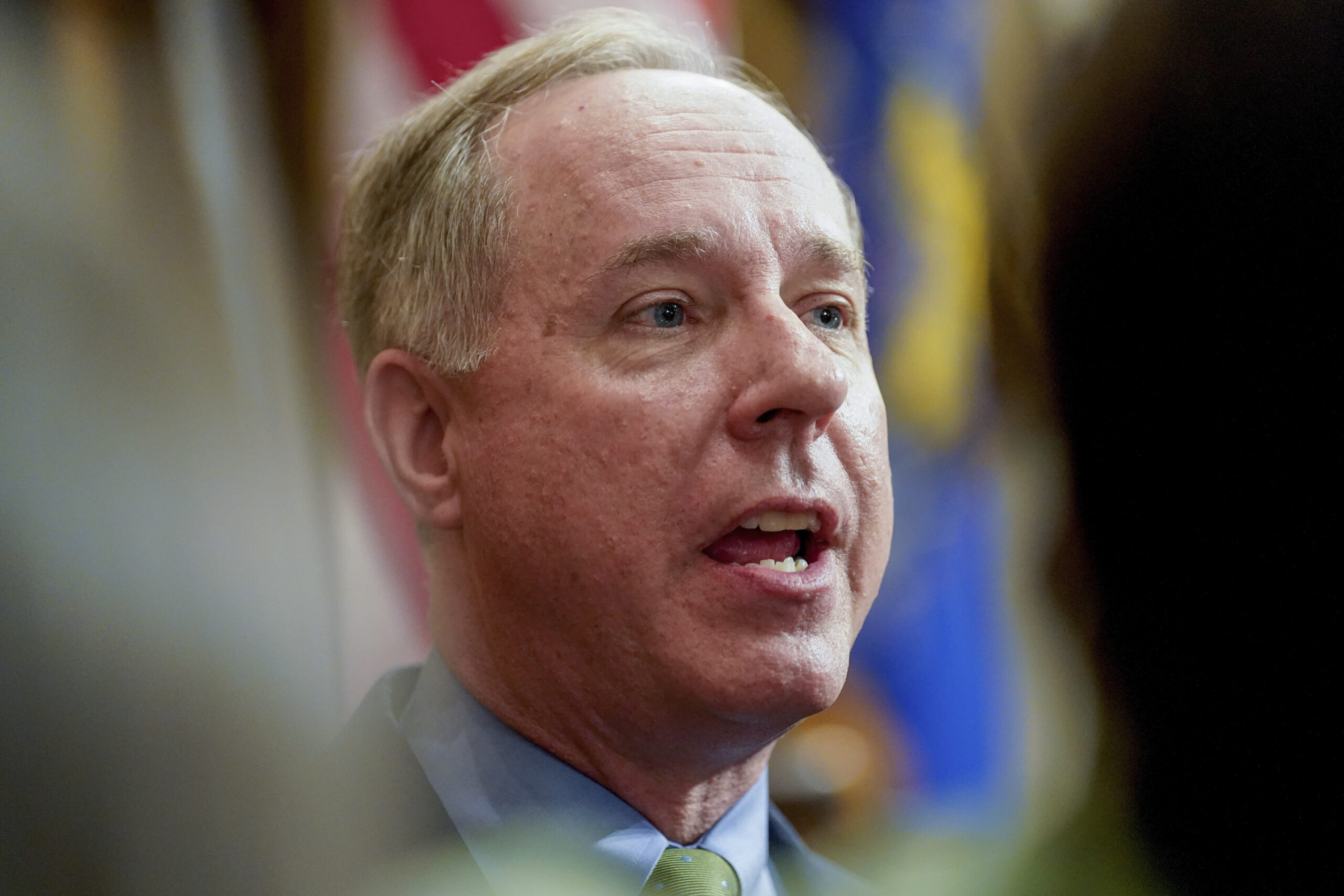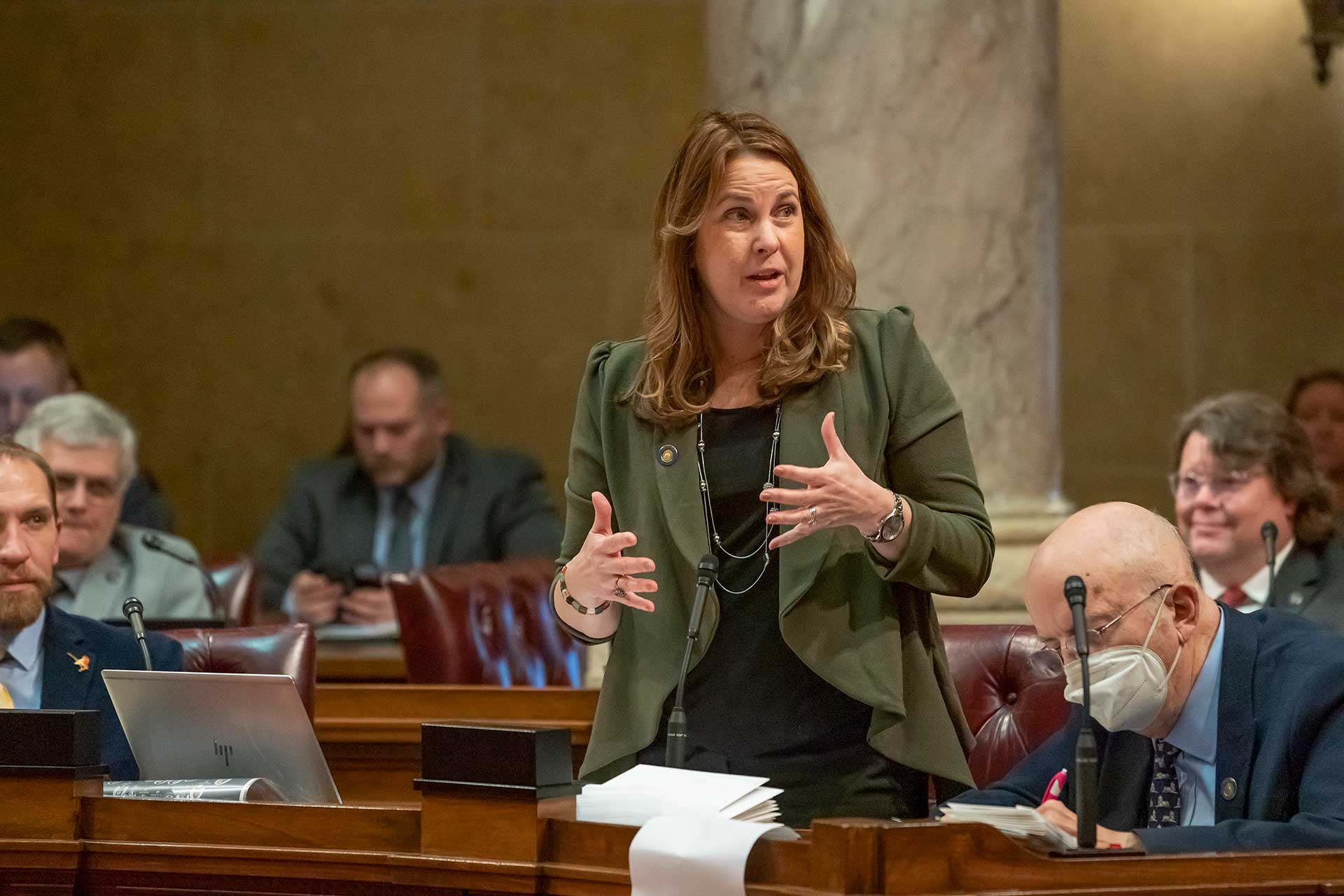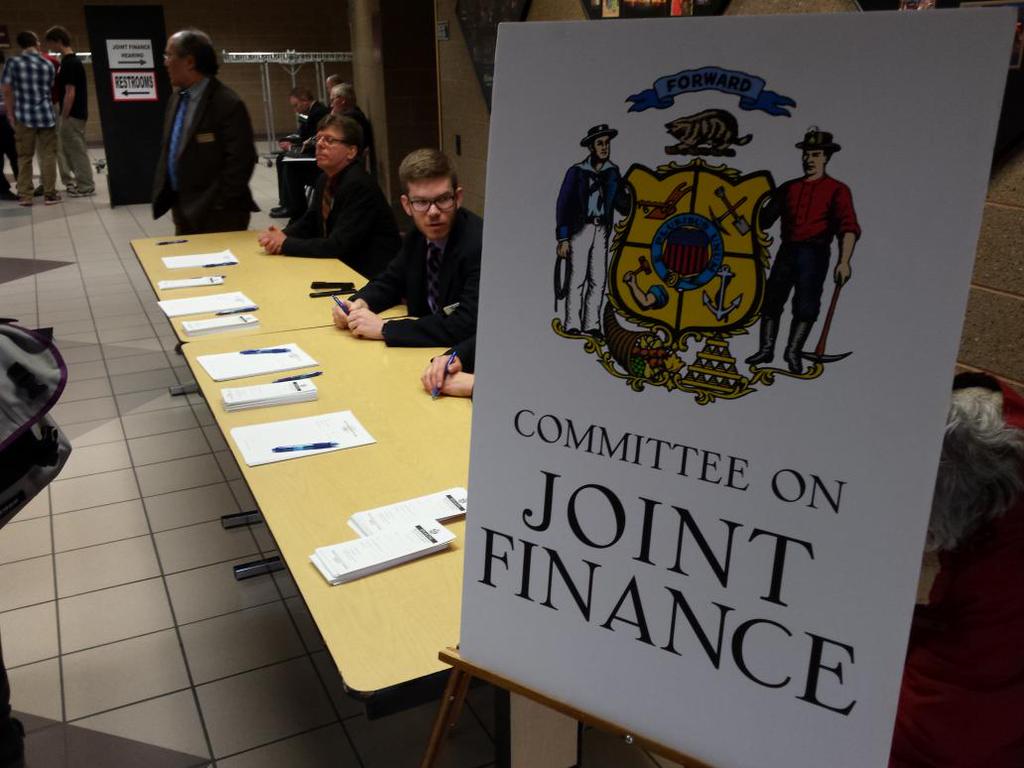Republicans in the Wisconsin Assembly will consider removing provisions related to Milwaukee from a massive overhaul of how the state funds local communities, Assembly Speaker Robin Vos, R-Rochester, said Wednesday.
The bill has been subject to significant back-and-forth since it was first introduced last month, both among Republican leaders of the state Legislature and with Democratic Gov. Tony Evers. The central sticking point has been a plan to add a local sales tax for Milwaukee.
Vos said that if lawmakers do not reach a resolution this week, he might remove any provisions related to Milwaukee in order to get the rest of the bill over the finish line.
Stay informed on the latest news
Sign up for WPR’s email newsletter.
“If we do not get a deal this week, I think we should strip out all of the Milwaukee things,” Vos told reporters Wednesday. “And we will just focus on the balance of the bill, which is repealing the personal property tax and making sure that every community around the state is not held hostage by Milwaukee’s problems.”
The bill the Assembly passed in mid-May would allow the city of Milwaukee and Milwaukee County to impose their own sales taxes, but only if voters approve the tax.
After Milwaukee leaders warned lawmakers that the referendum requirement could put the city at risk of cutting hundreds of police and firefighters, state Senate Majority Leader Devin LeMahieu, R-Oostburg, came out in support of removing the referendum requirement. That led to friction between LeMahieu and Vos and cast the future of any final deal into doubt.
Vos said his chamber would stay focused on the bill it had already passed.
“We have been at this for weeks,” he said. “We need to make progress. And I feel like that’s why we passed the bill several weeks ago. And we are continuing. I don’t want to negotiate with myself.”
LeMahieu declined to speak to reporters about Vos’ remarks after the Senate’s session early Wednesday afternoon. Hours later, LeMahieu issued a written statement that sought to put the focus instead on Evers.
“The Senate and Assembly have put forth a good-faith effort to reach a deal with the governor on shared revenue and provide financial stability for the city and county of Milwaukee,” read the statement. “Today we made our last, best offer to the governor.”
If an agreement is not reached, LeMahieu said the Senate would pursue a shared revenue bill that does not include a sales tax option for Milwaukee.
“The governor has a chance to save Wisconsin’s largest city and most populous county from bankruptcy. We hope he takes it,” LeMahieu said in the statement.
An Evers spokesperson did not respond to a request for comment on LeMahieu’s statement.
Earlier on Wednesday, Evers told reporters in Racine that the three leaders had had a “good conversation” on the bill on Monday.
Should Republicans remove the sales tax provisions from the local government funding bill, Sen. LaTonya Johnson, D-Milwaukee, warned that the consequences could be dire.
“A referendum is basically a death sentence for Milwaukee. That will not pass,” Johnson said.
Rep. Mark Born, R-Beaver Dam, who chairs the state’s budget-writing committee, also said negotiations over the state budget would be suspended until a deal on local funding is finalized.
Assembly passes package of bills aimed at ‘regulatory reform’
Vos’ remarks came ahead of a scheduled Assembly session at which lawmakers approved a slate of bills aimed at streamlining professional licensing. Many industries reliant on licensed professionals have advocated for changes to the process, which is administered by Wisconsin’s Department of Safety and Professional Services, or DSPS.
The bills would extend the renewal deadline for many professional licenses from once every two years to once every four years and impose certain reporting requirements on the agency.
Another would allow more professionals to utilize their out-of-state licenses to practice in Wisconsin while awaiting in-state credentials. Currently, some professions have been interstate reciprocity because of the COVID-19 pandemic. This bill would add other professions, like dental hygienist, to the list.
The legislation was suggested by a study committee that looked into Wisconsin’s professional licensing rules. That panel was composed of both Republican and Democratic lawmakers and business owners and advocates.
In his budget request, Evers asked for nearly 80 full-time equivalent employees to staff DSPS. Democrats in the Assembly argued that the agency’s shortcomings is caused by a lack of funding and staffing.
“Wisconsin can do better by giving our agencies the tools they need to do the good work to streamline processes, and get our skilled workers back to work,” said Rep. Kalan Haywood, D-Milwaukee.
Rep. Shae Sortwell, R-Two Rivers, the study committee’s vice chair, said policy changes and funding requests were separate questions.
“We are open to additional support for DSPS, additional positions for DSPS, additional funding for DSPS,” he said. “But let’s not put that issue in the way of these good policy items to improve DSPS.”
Republicans have previously said they are wary of providing more money to an agency that they deem ineffectual.
Lawmakers on Wednesday also unanimously approved a bill to expand the definition of “sexual contact” when prosecuting crimes against children. They also approved a bill that would charge people with a Class B felony if they provide drugs to a person who then overdoses and dies. That bill is now headed to the Governor.
Wisconsin Public Radio, © Copyright 2025, Board of Regents of the University of Wisconsin System and Wisconsin Educational Communications Board.







